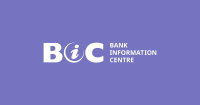About Bank information center
Bank Information Center: Promoting Transparency, Accountability, and Sustainability in Development
Bank Information Center (BIC) is a non-profit organization that partners with civil society to promote transparency, accountability, and sustainability in development. BIC works to ensure that the institutions driving development are accountable to the people they serve and operate in an environmentally sustainable manner.
BIC was founded in 1987 by a group of environmentalists who were concerned about the impact of World Bank-funded projects on local communities and the environment. Since then, BIC has expanded its focus to include other multilateral development banks such as the Asian Development Bank (ADB), African Development Bank (AfDB), Inter-American Development Bank (IDB), European Investment Bank (EIB), and European Bank for Reconstruction and Development (EBRD).
BIC's mission is to empower communities affected by development projects by providing them with information about these projects' potential risks. BIC also advocates for policies that promote transparency, accountability, and sustainability at multilateral development banks.
Transparency
One of BIC's primary goals is to increase transparency at multilateral development banks. These institutions often operate behind closed doors, making it difficult for affected communities to access information about proposed projects or voice their concerns.
To address this issue, BIC works with civil society organizations around the world to monitor bank activities closely. They also provide training on how citizens can use public information laws effectively.
Accountability
Another critical aspect of BIC's work is promoting accountability at multilateral development banks. These institutions have enormous power over developing countries' economies but are not always held accountable for their actions.
To address this issue, BIC conducts research on bank policies and practices related to social safeguards such as human rights protection or environmental standards. They also advocate for stronger oversight mechanisms within these institutions so that they can be held accountable when things go wrong.
Sustainability
Finally, sustainability is a core value at BIC. The organization recognizes that economic growth must be balanced against environmental protection if we want future generations' prosperity.
To promote sustainable practices at multilateral development banks like World Bank or ADB , BIC advocates for investments in renewable energy sources like solar or wind power instead of fossil fuels like coal or oil . They also push these institutions towards more environmentally friendly infrastructure projects such as public transportation systems rather than highways or airports .
Conclusion
In conclusion ,Bank Information Center plays an essential role in promoting transparency ,accountability,and sustainability across various international financial organizations . Their work empowers local communities affected by large-scale infrastructure developments while advocating for more responsible lending practices from major financial players worldwide . With their continued efforts towards creating a more equitable world economy through better governance standards ,we can hope that future generations will inherit a planet where economic growth goes hand-in-hand with social justice & ecological balance .



